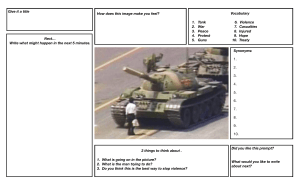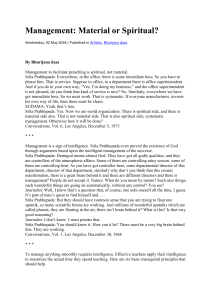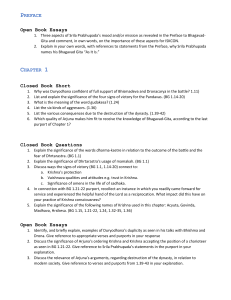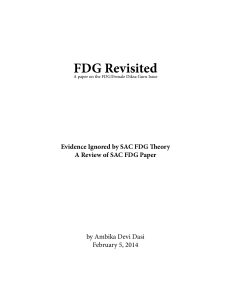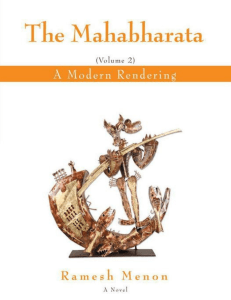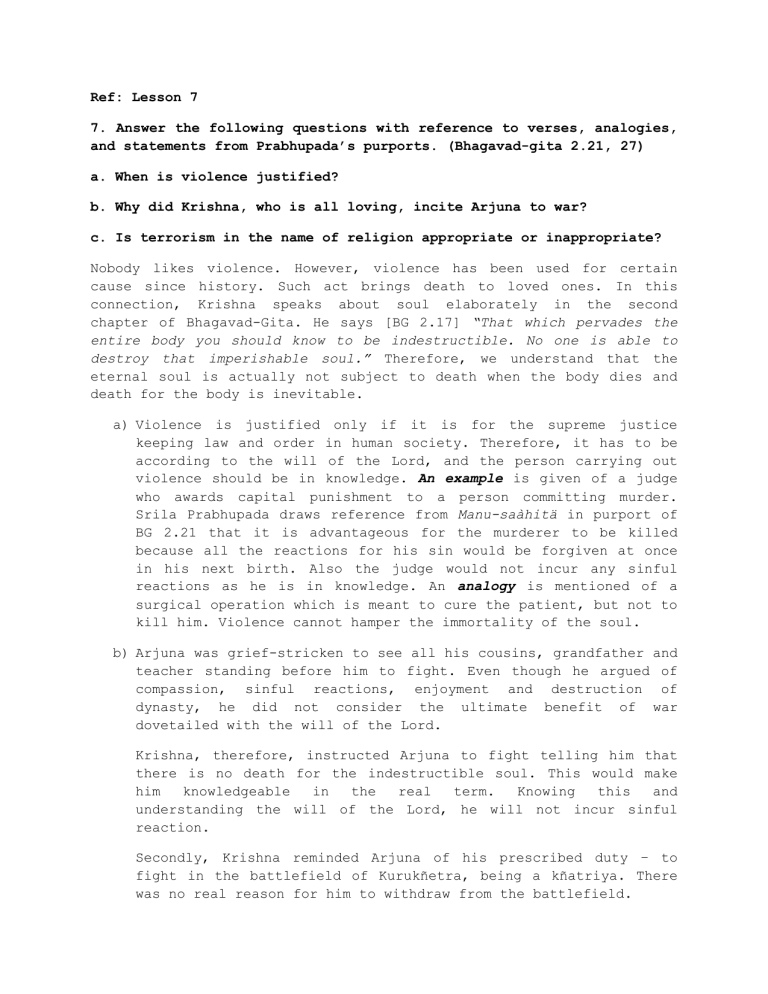
Ref: Lesson 7 7. Answer the following questions with reference to verses, analogies, and statements from Prabhupada’s purports. (Bhagavad-gita 2.21, 27) a. When is violence justified? b. Why did Krishna, who is all loving, incite Arjuna to war? c. Is terrorism in the name of religion appropriate or inappropriate? Nobody likes violence. However, violence has been used for certain cause since history. Such act brings death to loved ones. In this connection, Krishna speaks about soul elaborately in the second chapter of Bhagavad-Gita. He says [BG 2.17] “That which pervades the entire body you should know to be indestructible. No one is able to destroy that imperishable soul.” Therefore, we understand that the eternal soul is actually not subject to death when the body dies and death for the body is inevitable. a) Violence is justified only if it is for the supreme justice keeping law and order in human society. Therefore, it has to be according to the will of the Lord, and the person carrying out violence should be in knowledge. An example is given of a judge who awards capital punishment to a person committing murder. Srila Prabhupada draws reference from Manu-saàhitä in purport of BG 2.21 that it is advantageous for the murderer to be killed because all the reactions for his sin would be forgiven at once in his next birth. Also the judge would not incur any sinful reactions as he is in knowledge. An analogy is mentioned of a surgical operation which is meant to cure the patient, but not to kill him. Violence cannot hamper the immortality of the soul. b) Arjuna was grief-stricken to see all his cousins, grandfather and teacher standing before him to fight. Even though he argued of compassion, sinful reactions, enjoyment and destruction of dynasty, he did not consider the ultimate benefit of war dovetailed with the will of the Lord. Krishna, therefore, instructed Arjuna to fight telling him that there is no death for the indestructible soul. This would make him knowledgeable in the real term. Knowing this and understanding the will of the Lord, he will not incur sinful reaction. Secondly, Krishna reminded Arjuna of his prescribed duty – to fight in the battlefield of Kurukñetra, being a kñatriya. There was no real reason for him to withdraw from the battlefield. c) Terrorism technically invites mass murder of humans, irrespective of whether real justice is achieved. Also, nowadays, groups that perform terrorism have no information about the indestructible soul and their actions are completely on the bodily platform. Srila Prabhupada writes in his purport BG 2.27 that “one has to take birth according to one's activities of life. And after finishing one term of activities, one has to die to take birth for the next. In this way one is going through one cycle of birth and death after another without liberation.” However, Srila Prabhupada clarifies that such cycle of repeated birth and death is disrupted on the occasion of unnecessary murder, slaughter and war. Therefore, such interruptive actions are against the supreme law, which only permits violence for the purpose of good administration and upholding religious principles. Hence, immoral and illegal terrorism in the name of religion is not appropriate.
